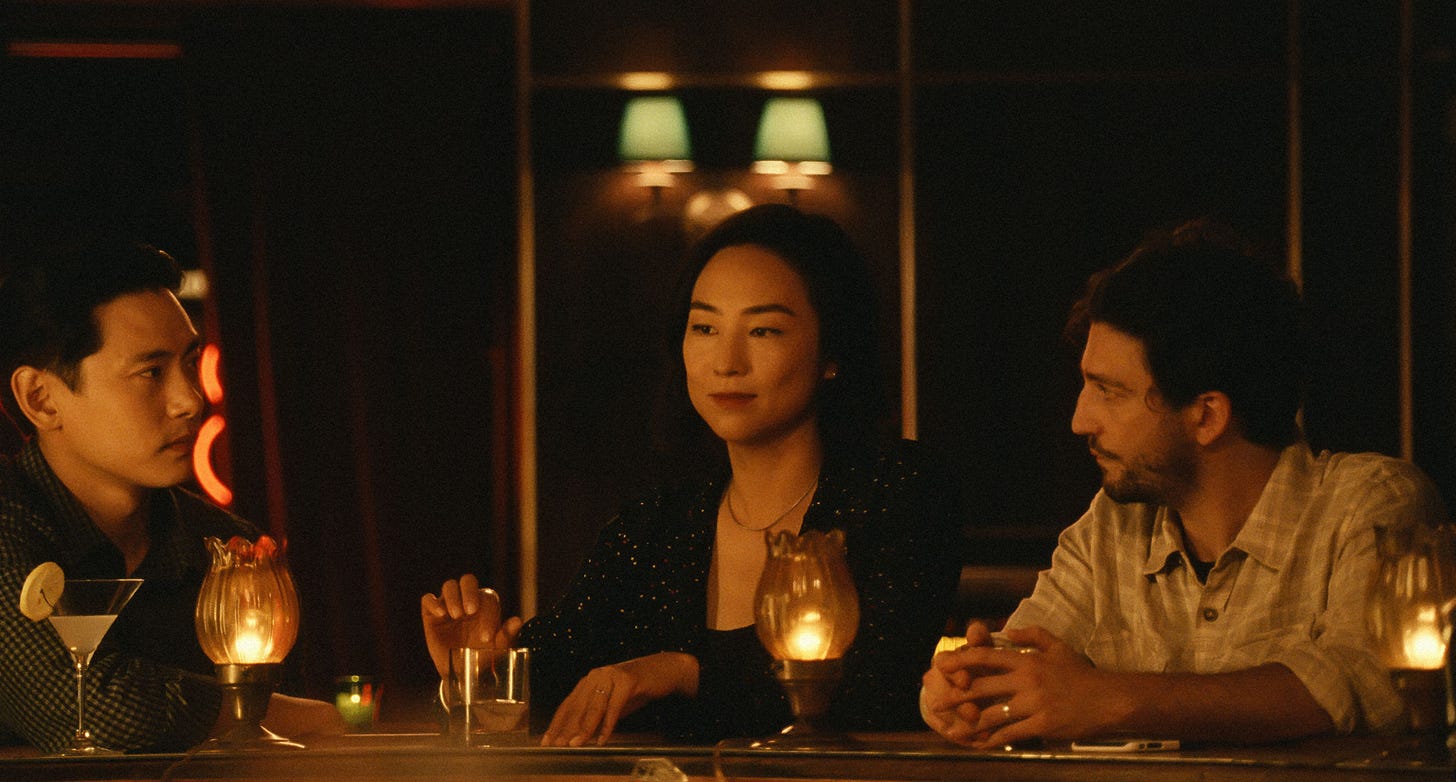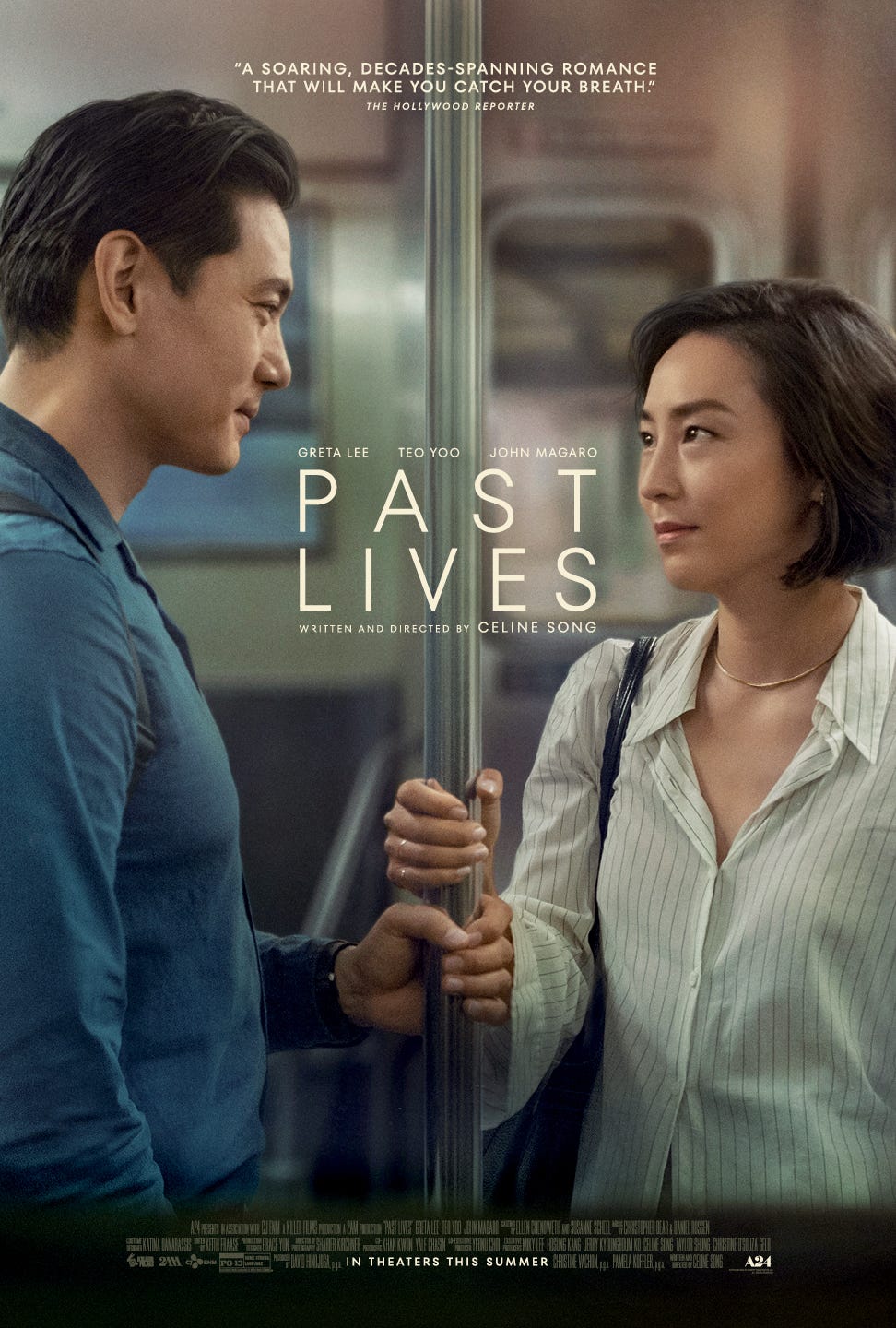“Who do you think they are to each other?”

An Asian woman sits at a bar, a man to her left and right. We watch the trio converse, their dialogue inaudible. An offscreen couple, their exact identities irrelevant to the story, vocalize the question that percolates in viewer’s minds.
“Who do you think they are to each other?”
The offscreen couple proceeds to speculate. You, the viewer, speculate too. After all, you have just as much information as the offscreen couple.
You, the perceptive viewer, hone in on certain things like body language and facial expressions. The offscreen couple venture their guesses, but ultimately they conclude, “I have no idea.”
Suddenly, the woman, Nora, looks directly into the camera. You, the onlooker, have been spotted. Nora sees you.
You don’t know Nora. You don’t know her situation but you’re comfortable gawking at her, judging three strangers in a bar. What is at the core of your speculation? Is it an idea of what this trio ought to be within the framework of a romantic narrative?
This is Past Lives’ first metamodern trick, soliciting your spectatorial judgment only to turn the tables and question the nature of your projections.
Past Lives, Celine Song’s semi-autobiographical directorial debut, is quite possibly my favorite movie of 2023. I fell in love minutes into the film. Its visual language is both elegant and economical. A deep sense of yearning is woven into the film’s DNA. Shots of city skylines convey beauty and promise, but the act of looking evokes feelings of searching. This isn’t your run-of-the-mill urban romance. It’s a meta-modern romantic masterwork that reinvigorates an otherwise formulaic genre.
This is not a straightforward, modernist narrative. Nor does it exhibit post-modern narrative cynicism that is hell-bent on subversion. The film exhibits a self-awareness that isn’t winking at the audience. Instead, in its first scene the film looks at you directly and in earnest.
Questions of authorship and self-reflexivity abound in a semi-autobiographical film in which the writer/director’s self-insert, Nora, is also a writer. As such, Nora fully comprehends the romantic grandiosity of the film’s premise and the storybook nature of her situation. Yet her awareness of narrative conventions allows her to express a real-life pragmatism that operates in tension with the audience’s expectations of romantic narratives.

It’s a difficult line to walk, and Past Lives does it all beautifully. The story progresses, displaying compassion for all its characters. It doesn’t adhere to nor reject romantic notions, it grapples with the complexities of relationships, culture, and questions of selfhood. It feels honest, attuned to the nuances of human connection and the complex interplay of emotions that it evokes.
I won’t spoil anything, but I’ll say the ending exemplified the affective potential of metamodern narratives. Past Lives is smart enough to know the difference between narrative and emotional resolution, and astute enough to properly navigate that liminal space and “stick the landing.”
I cannot recommend Past Lives strongly enough.
As of publication, Past Lives is available for digital rental or purchase.
Subscribe to Acquired Tastes for a newsletter every Sunday!
Let me know if you’ve seen Past Lives in the comments below.
Until next week, film freak.






A lovely review of this lovely film. Have you seen "Return to Seoul" yet? That film lingered much longer in my head than this one, though I know many people who loved "Past Lives" as much as you did.